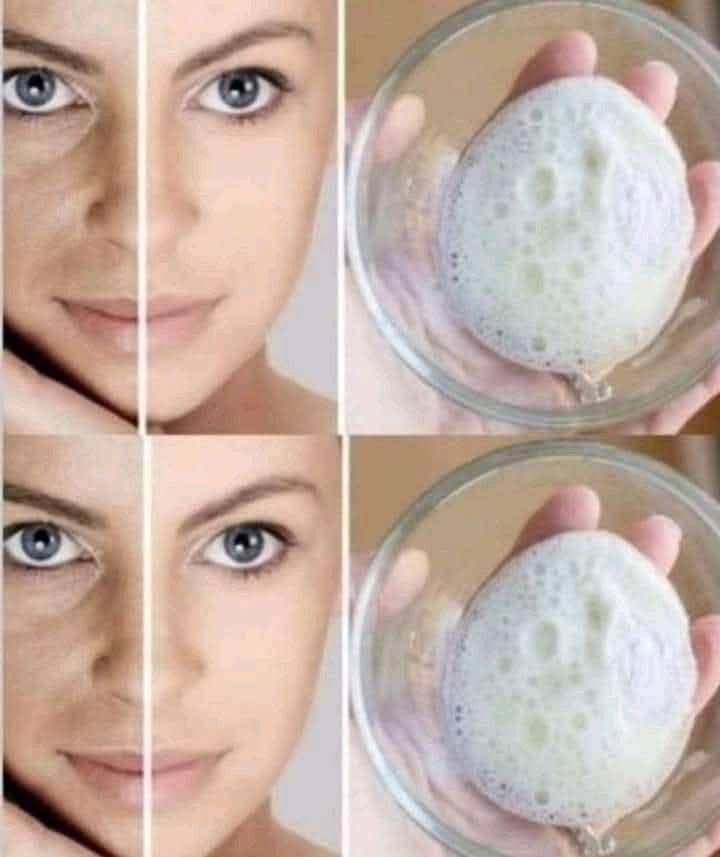Baking Soda for Your Face: A Natural Beauty Secret?
<!–  Have you heard the buzz about baking soda and its supposed magic for your skin? It’s true that this pantry staple can do more than just help your cakes rise. Many people swear by its ability to tackle blemishes, smooth wrinkles, and even lighten those pesky dark circles under your eyes. But before you rush to slather it all over your face, let’s explore how to use baking soda safely and effectively. We’ll dive into the science, the potential benefits, and the important precautions you need to know.
Have you heard the buzz about baking soda and its supposed magic for your skin? It’s true that this pantry staple can do more than just help your cakes rise. Many people swear by its ability to tackle blemishes, smooth wrinkles, and even lighten those pesky dark circles under your eyes. But before you rush to slather it all over your face, let’s explore how to use baking soda safely and effectively. We’ll dive into the science, the potential benefits, and the important precautions you need to know.
How Baking Soda Might Help Your Skin
<!– 
Baking Soda as an Exfoliant
Baking soda, also known as sodium bicarbonate, has a slightly abrasive texture. This makes it a potential exfoliant, helping to slough off dead skin cells.
* **How it works:** Gentle exfoliation can reveal brighter, smoother skin underneath.
* **Important note:** Be extremely gentle! Over-exfoliation can irritate and damage your skin.
Baking Soda for Acne and Blemishes
Some claim baking soda can help with acne due to its mild antiseptic and anti-inflammatory properties. It may help dry out pimples and reduce redness.
* **How it works:** It can neutralize the skin’s pH, potentially making it less hospitable to acne-causing bacteria.
* **DIY Spot Treatment:** Mix a small amount of baking soda with water to form a paste, apply directly to the blemish, and leave on for a few minutes before rinsing. (Patch test first!)
Baking Soda and Dark Circles
While there’s limited scientific evidence, some believe baking soda can lighten dark circles. This might be related to its exfoliating properties and its ability to improve circulation.
* **How it works (allegedly):** Improving circulation might reduce the appearance of darkness under the eyes.
* **Important disclaimer:** Be *extremely* careful using baking soda near your eyes! It can be irritating. Always dilute it well.
Using Baking Soda Safely: Crucial Precautions
<!– 
The Importance of a Patch Test
Before applying baking soda to your entire face, *always* do a patch test. Apply a small amount to an inconspicuous area, like your inner arm, and wait 24-48 hours to see if any irritation occurs.
Baking Soda’s pH Level
Baking soda has a high pH level (around 9), while healthy skin is slightly acidic (around 5.5). This means baking soda can disrupt your skin’s natural pH balance, leading to dryness, irritation, and even breakouts.
* **Why it matters:** Maintaining your skin’s pH is crucial for its overall health and ability to protect itself.
* **Counteracting the pH:** If you use baking soda, always follow up with a good moisturizer to restore your skin’s pH.
Dilution is Key
Never apply baking soda directly to your skin without diluting it. Mix it with water, honey, or another gentle ingredient.
Alternatives to Baking Soda
Before trying baking soda, consider gentler alternatives that are specifically designed for skincare, like:
* **AHAs/BHAs:** Chemical exfoliants that are often more effective and less irritating than baking soda.
* **Enzyme peels:** Gentle exfoliating treatments that use enzymes from fruits and vegetables.
* **Vitamin C serums:** Brighten skin and reduce the appearance of dark circles.
DIY Baking Soda Face Mask Recipe (Use with Caution!)
<!–  If you’re still determined to try a baking soda face mask, here’s a recipe to minimize potential irritation:
If you’re still determined to try a baking soda face mask, here’s a recipe to minimize potential irritation:
1. **Mix:** Combine 1 teaspoon of baking soda with 2 teaspoons of water or honey.
2. **Apply:** Gently apply a thin layer to your face, avoiding the eye area.
3. **Wait:** Leave on for *no more than* 5 minutes.
4. **Rinse:** Thoroughly rinse with lukewarm water.
5. **Moisturize:** Immediately apply a hydrating moisturizer.
Conclusion: Baking Soda – Proceed with Caution
<!–  While baking soda might seem like a cheap and easy skincare solution, it’s important to be aware of the potential risks. Its abrasive nature and high pH can disrupt your skin’s natural balance and cause irritation. Always patch test, dilute properly, and monitor your skin closely. Consider exploring gentler, more scientifically proven skincare options before relying on baking soda. Your skin will thank you! Remember to consult with a dermatologist for personalized skincare advice.
While baking soda might seem like a cheap and easy skincare solution, it’s important to be aware of the potential risks. Its abrasive nature and high pH can disrupt your skin’s natural balance and cause irritation. Always patch test, dilute properly, and monitor your skin closely. Consider exploring gentler, more scientifically proven skincare options before relying on baking soda. Your skin will thank you! Remember to consult with a dermatologist for personalized skincare advice.
